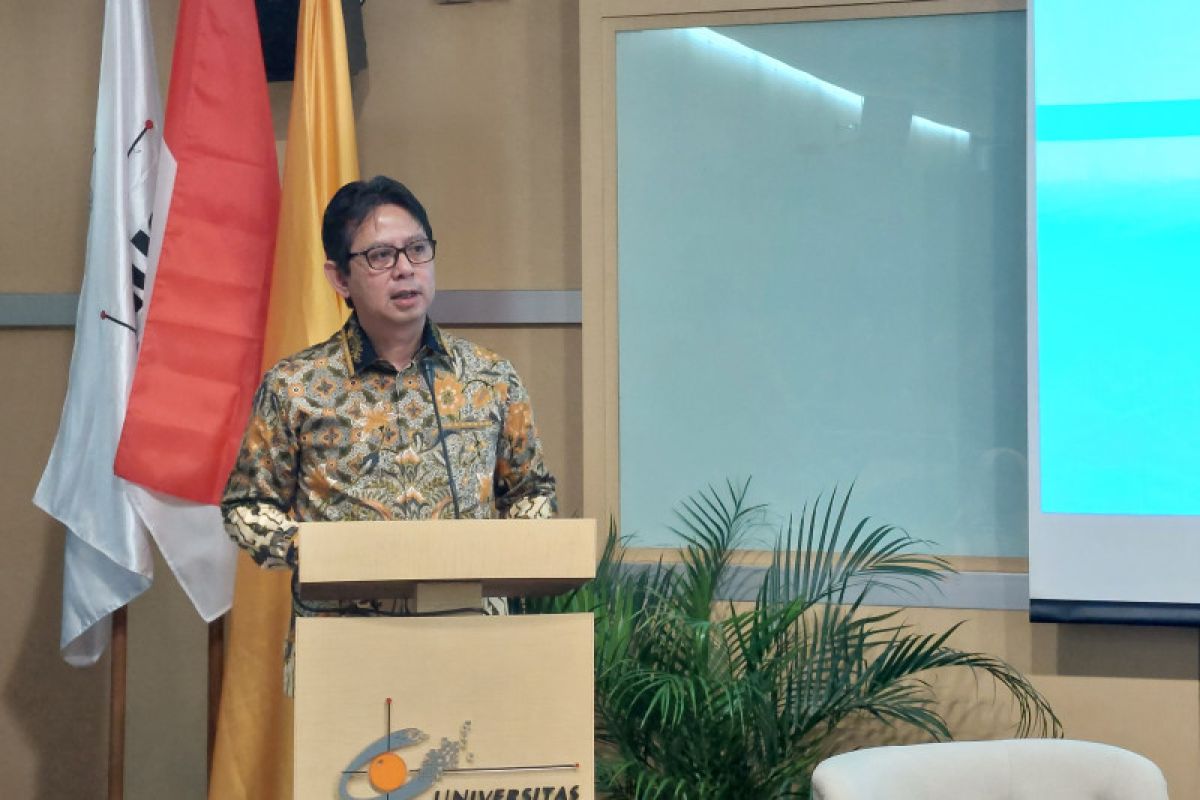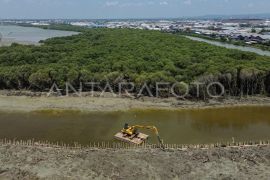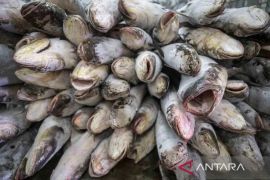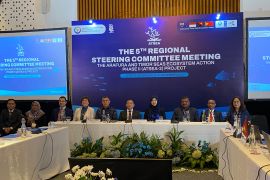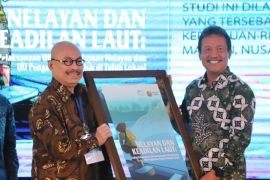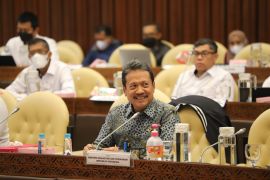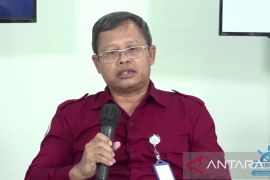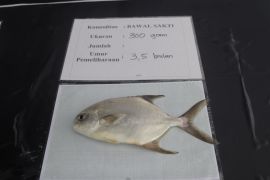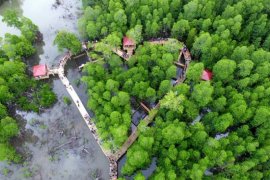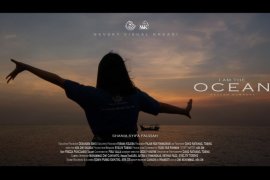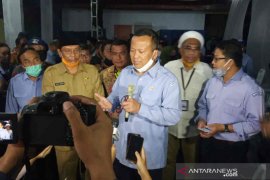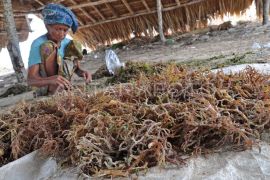Production of cultivated fish must be in accordance with the environment's supporting capability, resources efficiency, and be low emission or low amount of wasteJakarta (ANTARA) - The Maritime Affairs and Fisheries Ministry has affirmed its commitment to pursuing a blue economy through the sustainable utilization of the marine and fisheries ecosystem.
"(We are committed to) Truly upholding the blue economy principle, in which the sea's health becomes the main priority, which goes in balance with economic activities in a sustainable manner," Acting Head of the Data, Statistics, and Information Center of the ministry, Aulia Riza Farhan, said, during a discussion here on Thursday.
He represented Maritime Affairs and Fisheries Minister Sakti Wahyu Trenggono at the discussion.
Farhan said that some of the ministries' programs for achieving a blue economy in the maritime and fisheries sectors, range from expanding marine conservation to protecting carbon supply and biodiversity, improving regional quality, and involving people in maintenance and monitoring.
Its other programs include quota-based measured fishing, which involves taxing business players based on the volume of fish they catch, he pointed out. This is to ensure that the well-being of the fish and the environment is maintained and to encourage greater participation from local fishermen, he explained.
The ministry is also implementing a program for developing commodity-based sustainable marine, coastal, and land cultivation, which is oriented toward exports and domestic needs, so as to ensure that food resilience is maintained, he added.
"Fishes cultivation development is carried out by revitalizing the area. Production of cultivated fish must be in accordance with the environment's supporting capability, resources efficiency, and be low emission or low amount of waste," he elaborated.
The management and monitoring of coastal and islands, based on environmental sustainability, are being conducted by improving the regulations on regional protection as well as space allocation for ecosystem maintenance, he informed.
Last is the initiative to manage marine plastic waste by involving fishermen, which aims to educate people and raise awareness about maintaining sea cleanliness, Farhan said.
He stressed that the ministry's policies emphasize maintaining environmental sustainability while utilizing resources, with a view to balance the ecological and economic aspects in the future development of the marine and fisheries sector.
Farhan also drew attention to the need for collaborating with other sectors for developing innovative digital solutions to monitor and handle pollution, as well as improving marine resource conservation.
"Of course, the government is also expediting collaboration with all stakeholders. In this case, the Maritime Affairs and Fisheries Ministry needs technology, data engineers, and data scientists to support the blue economy program," he added.
Related news: Ministry awards three inspiring figures for blue economy development
Related news: Bappenas, Stanford University ink MoU on blue economy development
Related news: Indonesia, South Korea strengthen cooperation in maritime affairs
Translator: Adimas Raditya FP, Mecca Yumna
Editor: Sri Haryati
Copyright © ANTARA 2023
